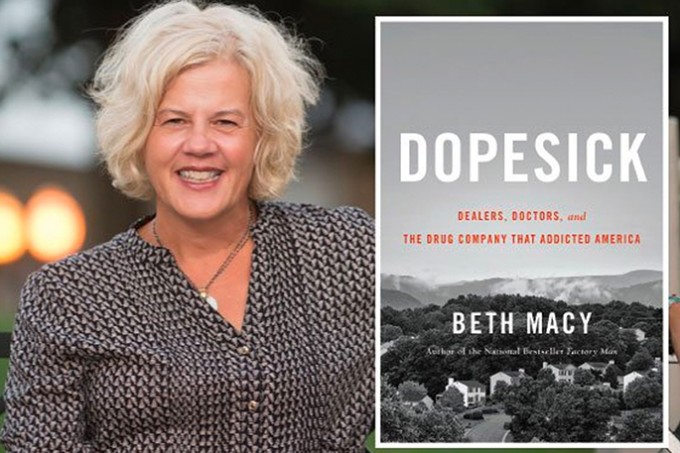Nursing Book Club
Dopesick: Dealers, Doctors and the Drug Company That Addicted America by Beth Macy
An origin story for the opioid crisis

In her new book, Dopesick, journalist and author Beth Macy traces the history of a public health crisis that now kills more Americans under the age of 50 than guns or car accidents, and whose grim toll exceeds even the worst years of the HIV epidemic.
Macy began following the opioid crisis and its impact on marginalized families back in 2012, as a reporter for Virginia’s Roanoke Times. By the time her book was finished five years later, several of the people she’d interviewed had already died.
None of this book is sugarcoated, and some of the stories she shares are just astounding. A single batch of heroin in West Virginia stopped the breathing of 26 people in a single day. There were so many deaths in that state that the indigent-burial assistance program ran out of money five years in a row. One young man Macy interviewed became an EMT after two teens behind him in his high school classroom fell out of their chairs because they’d overdosed during class.
The book’s title, Dopesick, refers to the physical symptoms addicts experience when trying to wean themselves from opioids. However, Macy does not focus only on the individuals, families and healthcare providers caught in the web of opioid addiction, but also on the larger issues of how these medications have been licensed and abused in the U.S.













